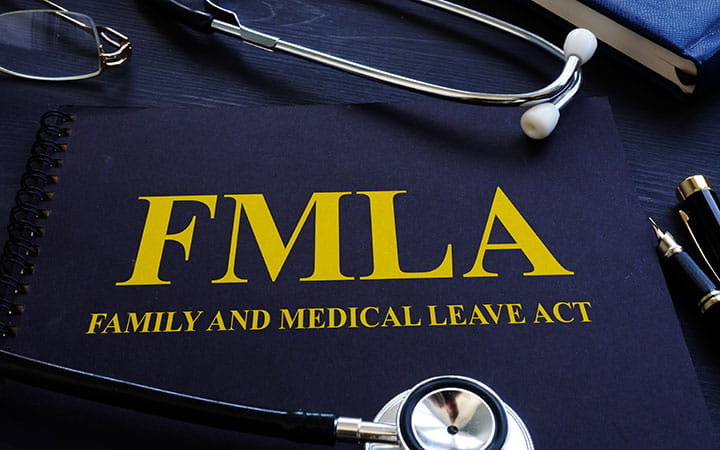Family Medical Leave Explained
July 18, 2014

It can feel hard enough to balance work and home when everyone in your family is well. But what happens when someone is seriously ill?
The Family and Medical Leave Act (FMLA) was put in place to protect workers who need to take time off when sickness strikes or other family needs arise.
Your Legal Rights
U.S. federal law mandates that employers allow covered workers to take an unpaid leave of up to 12 weeks within any 12-month period for certain medical or family reasons.
Not all workers are eligible. You must have worked for your employer for at least 12 months, and you must have worked at least 1,250 hours in the previous year. You must also work at a location with at least 50 employees within 75 miles.
Covered workers with qualified reasons cannot be denied FMLA, although some companies may legally require you to use vacation or sick days in your benefits package before FMLA leave entitlement begins.
“It’s wonderful that we’ve got this,” says internist Roy Buchinsky, MD, “but some people aren’t aware that they even have this right.”
Companies are required to inform their employees about FMLA, Dr. Buchinsky says.
“If it’s available, it needs to be well-publicized by human resources and clearly posted in a visible area of the working space,” he says.
Qualified Reasons for Taking Leave
FMLA allows leave for these reasons:
- Caring for a newborn, newly adopted child or newly placed foster child
- Caring for an immediate family member with a serious health condition
- Being unable to work due to your own serious health condition
FMLA defines immediate family as spouse, children under 18 and parents. So caring for in-laws, siblings and close friends is not covered. Understanding what constitutes a serious health condition, however, is more complicated.
“Conditions that aren’t covered are things like acute viral illness, cosmetic surgery, mental illness from stress, the flu or routine dental care,” Dr. Buchinsky says. “FMLA basically covers serious health conditions, illnesses and injuries that keep you from being able to work or take care of yourself.”
These include conditions that involve:
- Inpatient care in a hospital, hospice or rehabilitation center
- Being absent from work or school for more than three days and requiring treatment from a healthcare provider
- Short-term incapacity due to pregnancy or chronic conditions such as asthma, diabetes or epilepsy
- Long-term incapacity due to conditions such as Alzheimer’s disease, stroke or terminal illness
- Receiving regular treatments like chemotherapy, physical therapy or dialysis
It can be confusing to figure out who is covered, what is covered and what documentation you must provide your employer. Contact your local U.S. Wage and Hour Division Office to learn more about your rights and responsibilities.
Deciding When to Take an FMLA Leave
Even if you qualify for an FMLA leave, it doesn’t necessarily mean you have to take it. For instance, financially it may make more sense to keep your steady paycheck and instead hire help to care for your sick parent.
There are some concerns that should not prevent you from taking your leave, however. First, you shouldn’t worry about your co-workers learning about a health situation you’d prefer to keep private. FMLA is covered under the Health Insurance Portability and Accountability Act (HIPAA), meaning your employer is required to keep your medical information confidential, Dr. Buchinsky says.
“Other than the doctors and the human resources workers administering the leave, no one else should know,” he says.
Secondly, you shouldn’t worry about the status of your job upon returning to work. Your employer is legally required to offer you the same salary package you had before your leave.
“The law is designed to protect your current job, pay and benefits,” Dr. Buchinskysays. “Employees should not be afraid to tap into this benefit.”
Roy Buchinsky, MD, is the Robert and Susan Hurwitz Master Clinician of Wellness for University Hospitals. You can Request an Appointment with Dr. Buchinsky or any other University Hospitals doctor online.
Tags: Primary Care, Workplace Issues


